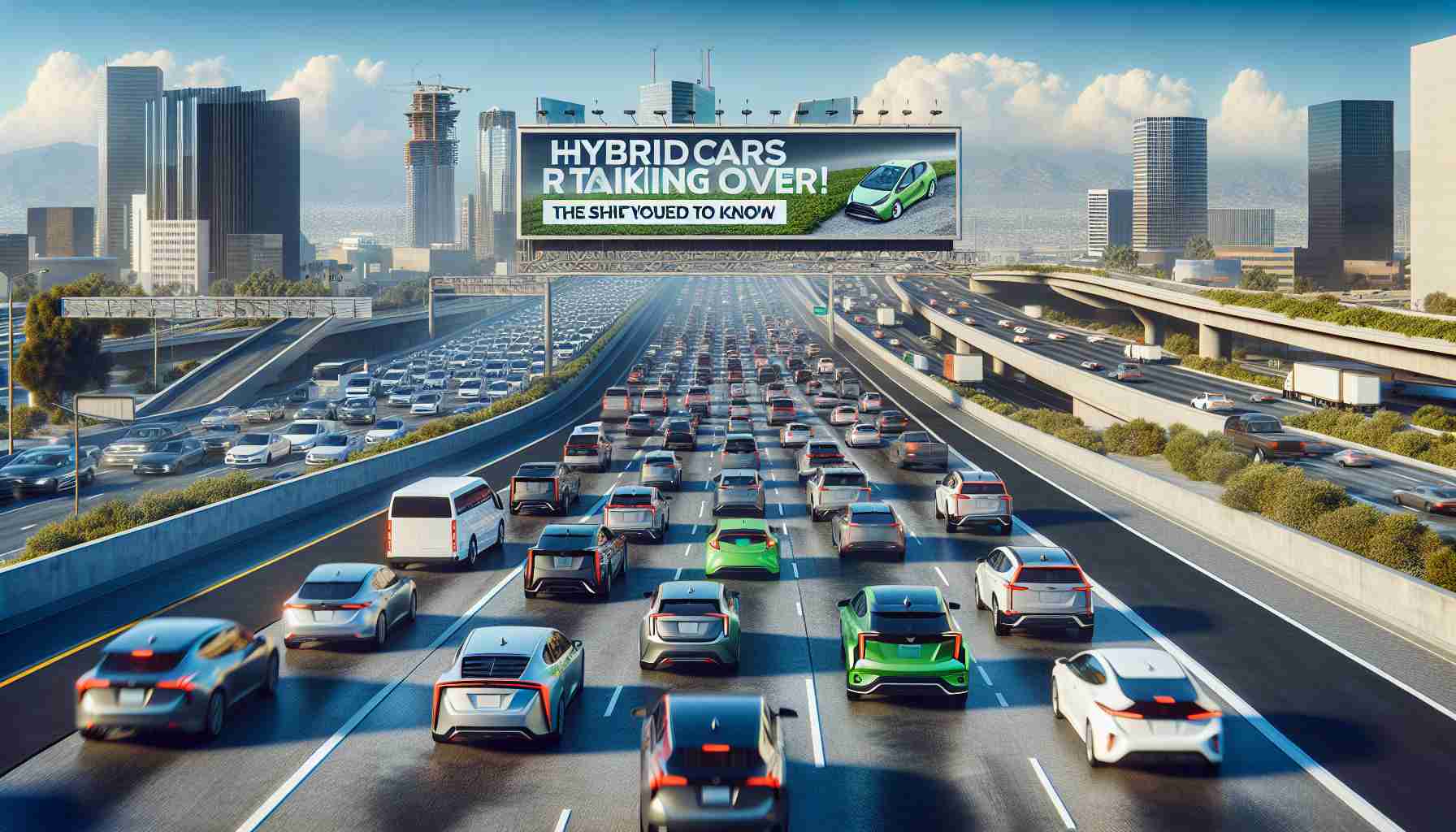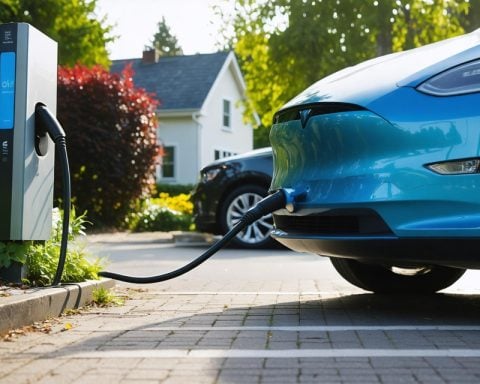Introduction
The automotive landscape is transforming, and one trend stands out: hybrids are becoming the car of choice for many buyers.
Sales Breakdown
Recent statistics reveal that traditional petrol vehicles were purchased in significant numbers, with 658,853 units sold. Following closely, pure electric cars reached 381,970, while diesel models trailed with only 54,804 sales. LPG vehicles made a minimal mark with just 1,308 units sold.
The Rise of Hybrids
In a surprising twist, hybrids have surged ahead, commanding a larger share of the market than petrol and diesel vehicles combined last year. These figures suggest that consumers are gravitating towards hybrids, especially mild hybrids, as a practical choice for their automotive needs.
Reason for Popularity
This trend can be attributed to the perfect balance hybrids offer, sitting between the affordability of petrol cars and the premium price of fully electric models. Over the next decade and beyond, hybrids are expected to remain a popular choice among car buyers, offering a sensible middle ground that attracts those looking to manage expenses effectively.
Conclusion
As the automotive industry evolves, the rise of hybrids signals a pivotal change in consumer preferences, paving the way for a future where these vehicles are a staple on the roads. What are your thoughts on this trend?
The Broader Implications of the Hybrid Revolution
The shift towards hybrid vehicles signifies more than just a change in consumer preference; it reflects a reconfiguration of societal values regarding sustainability and technology. As hybrids outpace traditional petrol and diesel cars, their popularity points to a growing awareness of environmental issues among consumers. Citizens are increasingly concerned about their carbon footprints, and hybrids offer a practical solution without the range anxiety often associated with pure electric vehicles.
Moreover, the ascendancy of hybrids could have profound implications for the global economy. As automakers adapt to this growing demand, we can expect significant investments in hybrid technology and infrastructure. The automotive sector, traditionally dominated by fossil fuel solutions, may witness a reallocation of resources towards hybrid production, ultimately influencing job creation and economic growth in related industries, such as battery manufacturing and renewable energy.
On the environmental front, while hybrids are not entirely devoid of emissions, their ability to function with greater efficiency than traditional cars may lead to a gradual reduction in overall vehicular pollution. Moving into the future, this trend may drive innovation in energy sources, paving the way for new technologies that further enhance the sustainability of personal and public transportation. As society increasingly prioritizes eco-friendly solutions, the hybrid vehicle could emerge as a critical transitional model in the quest for a cleaner, more efficient transportation future.
The Hybrid Revolution: Why They Are Taking Over the Automotive Market
Introduction
The automotive landscape is undergoing significant transformations, with hybrids emerging as the preferred option for an increasing number of buyers. This article delves into the latest trends, statistics, and consumer insights surrounding hybrid vehicles.
Sales Breakdown and Market Insights
Recent data reveals that traditional petrol vehicles maintained a strong presence with 658,853 units sold. However, the demand for pure electric vehicles also surged, reaching 381,970 units, while diesel models lagged with only 54,804 sales. Notably, LPG vehicles accounted for a mere 1,308 units.
Hybrids now dominate the market, surpassing the combined sales of petrol and diesel vehicles last year. This significant shift indicates a palpable change in consumer preferences, with hybrids—especially mild hybrids—gaining prominence.
The Appeal of Hybrids
There are several reasons behind the increasing popularity of hybrid vehicles:
1. Cost Efficiency: Hybrids provide a balance between the affordability of petrol cars and the higher cost of fully electric models. This makes them attractive to budget-conscious consumers.
2. Environmental Considerations: With growing awareness of environmental issues, many consumers opt for hybrids as a more sustainable choice. They offer improved fuel efficiency and reduced emissions compared to conventional vehicles.
3. Versatility: Hybrids offer the flexibility to utilize both electric and petrol power, alleviating concerns about charging infrastructure and range anxiety commonly associated with fully electric vehicles.
4. Incentives and Benefits: Many governments offer incentives for hybrid purchases, including tax rebates and benefits like access to carpool lanes, which further enhance their appeal.
Future Predictions for Hybrids
Over the next decade, hybrids are expected to hold a strong position in the automotive market. Analysts predict that as technology advances, hybrids will continue to evolve, becoming even more efficient and user-friendly. The ongoing development in battery technology and hybrid powertrains may increase their appeal by reducing costs and enhancing performance.
Comparative Analysis: Hybrids vs. Electric and Traditional Vehicles
| Feature | Hybrids | Electric Vehicles | Traditional Vehicles |
|————————–|—————————–|———————————|———————————–|
| Fuel Efficiency | Very High | Highest | Moderate |
| Upfront Cost | Moderate | High | Low to Moderate |
| Maintenance Costs | Low | Low (due to fewer moving parts) | Moderate to High |
| Environmental Impact | Lower emissions | Zero emissions | Higher emissions |
| Charging Infrastructure | Not Required (mostly) | Required | Not Applicable |
Limitations and Considerations
Despite their advantages, hybrids do have some limitations:
– Higher Initial Investment: Hybrids typically have a higher purchase price compared to traditional petrol vehicles.
– Complexity: The dual powertrain system can lead to more complex maintenance requirements.
– Battery Replacement Costs: Eventually, the batteries may need replacement, which can be costly.
Market Trend Insights
The hybrid market is predicted to grow significantly as manufacturers expand their lineups to include more hybrid models. With increasing environmental regulations and consumer demand for greener options, automakers are investing in hybrid technologies.
Sustainability Factors
Hybrids are often seen as a transitional technology towards fully electric vehicles (EVs). They present a sustainable option for consumers who are not yet ready to make the leap to complete electrification. This positions hybrids as an essential part of the automotive ecosystem during the transition period.
For more insights into automotive trends, check out AutoTrader.













